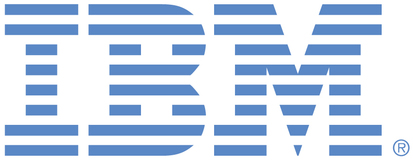
This is an IBM Automation portal for Digital Business Automation products. To view all of your ideas submitted to IBM, create and manage groups of Ideas, or create an idea explicitly set to be either visible by all (public) or visible only to you and IBM (private), use the IBM Unified Ideas Portal (https://ideas.ibm.com).
Shape the future of IBM!
We invite you to shape the future of IBM, including product roadmaps, by submitting ideas that matter to you the most. Here's how it works:
Search existing ideas
Start by searching and reviewing ideas and requests to enhance a product or service. Take a look at ideas others have posted, and add a comment, vote, or subscribe to updates on them if they matter to you. If you can't find what you are looking for,
Post your ideas
Post an idea.
Get feedback from the IBM team and other customers to refine your idea.
Follow the idea through the IBM Ideas process.
Please use the following category to raise ideas for these offerings for all environments (traditional on premises, containers, on cloud):
Cloud Pak for Business Automation - including Business Automation Studio and App Designer, Business Automation Insights
Business Automation Workflow (BAW) - including BAW, Business Process Manager, Workstream Services, Business Performance Center, Advanced Case Management
Content Services - FileNet Content Manager
Content Services - Content Manager OnDemand
Content Services - Daeja Virtual Viewer
Content Services - Navigator
Content Services - Content Collector for Email, Sharepoint, Files
Content Services - Content Collector for SAP
Content Services - Enterprise Records
Content Services - Content Manager (CM8)
Datacap
Automation Document Processing
Automation Decision Services (ADS)
Operational Decision Manager
Robotic Process Automation
Robotic Process Automation with Automation Anywhere
Blueworks Live
Business Automation Manager Open Edition
IBM Process Mining
Specific links you will want to bookmark for future use
Welcome to the IBM Ideas Portal (https://www.ibm.com/ideas) - Use this site to find out additional information and details about the IBM Ideas process and statuses.
IBM Unified Ideas Portal (https://ideas.ibm.com) - Use this site to view all of your ideas, create new ideas for any IBM product, or search for ideas across all of IBM.
ideasibm@us.ibm.com - Use this email to suggest enhancements to the Ideas process or request help from IBM for submitting your Ideas.

Hello Shyam,
Thank you for submitting this Idea.
Datacap can convert PDFs to images and then convert those to RTF format (Rich Text Format). MS Word can open RTF files.
As you may be aware, PDFs are becoming more complicated. Print features are disabled, they can have a file of any type embedded. For these reasons this Idea will not be pursued.
Sincerely,
Neil Parrott
Senior Product Manager
IBM Content Services
IBM Software
Dear All,
I followed below procedure to this task, but it was lengthy process and not working for images inside PDF file, basically it wont convert.
Steps to Follow:
To convert a PDF to text in IBM Datacap, you would typically use a combination of rules and actions in Datacap Studio. Below is a basic example of how you can achieve this using Datacap with an OCR engine like ABBYY or Nuance.
Step-by-Step Code for Converting PDF to Text:
Create a New Rule Set in Datacap Studio:
Open Datacap Studio and create a new Rule Set, which will contain the steps for PDF to text conversion.
Add Actions to the Rule Set:
Use the following actions in sequence to perform OCR on a PDF and extract the text:
Example Rule Set Actions
Key Components:
LoadPDFFile Action: This action loads the PDF into Datacap for processing.
ConvertPDFToImage Action: Converts each page of the PDF into an image because OCR engines typically work on image files.
RecognizePage Action: Uses the specified OCR engine (like ABBYY) to recognize text in the images.
ExtractText Action: Extracts the recognized text from the OCR process and saves it to a text file.
Steps to Implement:
Create a new rule set in Datacap Studio and add these actions to the rule set.
Modify the parameters (like file paths and OCR engine) as per your environment.
Test the rule set by running it against a sample PDF.
Deploy and integrate the rule set into your Datacap workflow.
Additional Notes:
The
ConvertPDFToImageandRecognizePageactions may vary depending on the OCR engine and Datacap version you are using.You might need to customize error handling and logging based on your requirements.
This code snippet provides a basic framework. Depending on your setup, you might need to adjust it or add additional actions to handle specific cases like multi-page PDFs or different OCR engines.
Note: Anyways IBM has to give the feature/action for this request, because i see many companies requesting this type of requirements.
Thanks,
Shyam B.